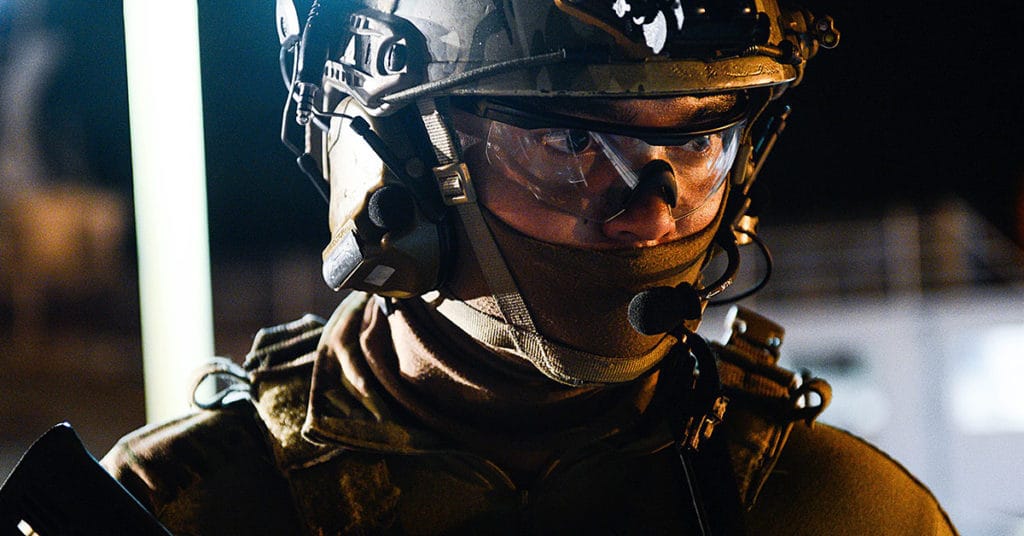A little-known group of specially-trained Coast Guardsmen are playing a key role in securing a presidential retreat in Florida and guarding against the smuggling of doomsday weapons out of war-torn Syria.
Few know about the Coast Guard’s cadre of special operations units but that doesn’t mean they’re sitting idle, says the service’s top commander.
“This is a team that’s not sand lot ball. These are the pros that have very unique weapons skills and training and not everyone makes this team,” said Coast Guard Commandant Adm. Paul Zukunft during a breakfast meeting with reporters April 12. “These teams are if anything probably over employed right now in terms of their optempo — both on the anti-terrorism front and on the counter-terrorism front as well.”

The official patch of the Coast Guard’s Maritime Security Response Team. (U.S. Coast Guard photo)
Established in the years after 9/11 to provide another layer of special operations capability both in the United States and worldwide, the Coast Guard previously housed these various specialized teams under one command, dubbed the “Deployable Operations Group.” Comprised of highly-trained boat teams, crisis response forces and counter proliferation experts, the DOG was disbanded in 2012 and its units dispersed to separate commands.
Despite its troubled past, the Coast Guard’s special operators are front and center in some of America’s most high profile missions. Zukunft said his teams are providing maritime security for President Donald Trump when he visits his golf resort at Mar a Lago in Florida, working closely with the U.S. Secret Service to protect world leaders from potential attack.

Security Zones in vicinity of Mar A Lago, Florida are established during VIP visits to the Miami area. (U.S. Coast Guard photo illustration by Seventh Coast Guard District)
“I had three teams providing force protection for presidents of the two largest nations in the world — China and the United States — at Mar a Lago. That’s what these teams do, Zukunft said. “We’re seeing more and more of these nationally significant security events in the maritime domain.”
The service’s capability also includes Coast Guardsmen trained to locate and secure chemical and nuclear weapons — operators that are part of the Maritime Security Response Teams. Similar to SEALs, the MSRT Coast Guardsmen can take down ships, oil platforms and other vehicles used to smuggle WMD material over water.
It’s members of these MSRT units that are currently deployed to help the U.S. military guard against doomsday weapons leaking out of Syria and other regional hotspots.

The Coast Guard’s Maritime Security Response Team (MSRT) from Virginia participates in a training evolution in Hyannis, Mass., Thursday, Oct. 22, 2015. The highly trained and specialized team, using a real-world underway ferry, practiced tactical boardings-at-sea, active shooter scenarios, and detection of radiological material. (U.S. Coast Guard photo by Petty Officer 3rd Class Ross Ruddell)
“We have a full-up [counter terrorism team] deployed right now in the Mediterranean in support of CENTCOM. It’s an advanced interdiction team in case there is any movement of a weapon of mass destruction,” Zukunft said. “This is a team that if necessary, forces itself onboard a ship … and they have all of the weapons skills of special forces, but they have law enforcement authority.”
Despite the rocky road in the unit’s formation, Zukunft is confident the Coast Guard’s special operations units are here to stay.


